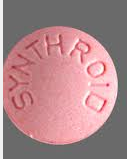 Any Dispatch reader will certainly not be shocked that we regularly write about, and interview experts concerning the wild west of the American health frontier the largely unregulated vitamin and supplements industry. And it should be no surprise that we are rarely short on material.
Any Dispatch reader will certainly not be shocked that we regularly write about, and interview experts concerning the wild west of the American health frontier the largely unregulated vitamin and supplements industry. And it should be no surprise that we are rarely short on material.
Indeed, stories about poorly manufactured, untested, and adulterated supplements come up about as often as the sun.
But here is a case where the supplement in question thyroid boosters can be acutely dangerous. And if there is a better example of why you should avoid this kind of junk it would be hard to find.
Stephanie Lee, MD, PhD, director of the thyroid health center at Boston Medical Center told MedPage Today. "Over-the-counter thyroid supplements are not supposed to contain any thyroid hormone. But there's no truth-in-labeling in these supplements. People who are unsuspecting, or who are already on thyroid medications ... can become significantly and severely hyperthyroid.
This is no laughing matter. An overabundance of thyroid hormones can be deadly. There is a condition called thyroid storm, where the thyroid gland quickly and suddenly releases large amounts of thyroid hormones. It is a life-threatening condition, yet people are walking into health stores and buying very powerful drugs that can have this effect.
Yes drugs. Of the supplements examined, some were found to contain T4, aka Synthroid, a powerful drug used to treat hypothyroidism. It is patently ridiculous that T4 can be bought in a vitamin shop, especially since patients who do require treatment for hypothyroidism need to be monitored very carefully to ensure that they are getting the exact necessary dose of thyroid hormone. Yet, not only do these supplements contain drugs that they are not supposed to have, the variability of the dose was enormous, with the highest measured doses being equivalent to the amount of T4 actually prescribed for hypothyroidism. Can you say insane?
ACSH s Dr. Josh Bloom, a big fan of irony, comments on our pathetic state of knowledge of real vs. phony or hypothetical risks: The chemical scare cottage industry constantly bombards us with intentionally terrifying stories about endocrine disruptors long-used, common, and safe chemicals, such as triclosan, BPA and methyl paraben which, if taken on face value would seem to be so toxic that it is truly astonishing that anyone on earth is still alive.
The typical knock on these chemicals is that they bind to human estrogen receptors and elicit a host of hormonal changes, which should result in the mass sterilization of humanity. While it is true that virtually all of us have minute traces of these and thousands of other chemicals in our bodies, evidence of actual harm to anyone is notably absent. This is partly due to the very small amounts of the chemicals in question and the fact that that they bind so weakly to estrogen receptors (sometimes one million times weaker than our own sex hormones) that any real consequences from the presence of BPA, etc. are, at most, remote.
Dr. Bloom says, Now we are dealing with real hormones and a very powerful ones at that. The people and groups that have made careers scaring people about BPA on cash register receipts are strangely silent. If they are indeed concerned about the health of our collective endocrine systems, they should be screaming bloody murder right now. I guess this doesn t fit their agenda.